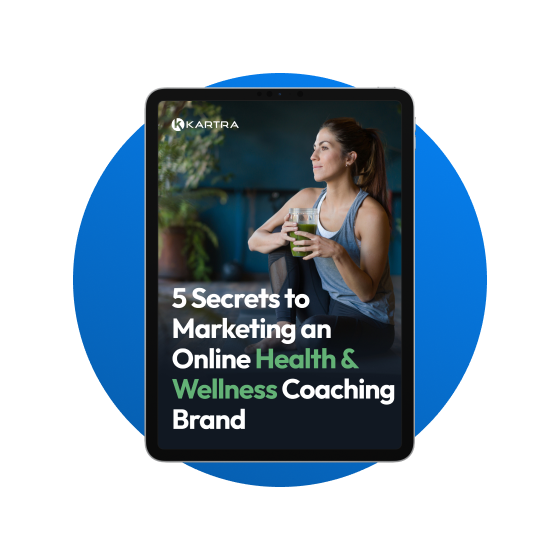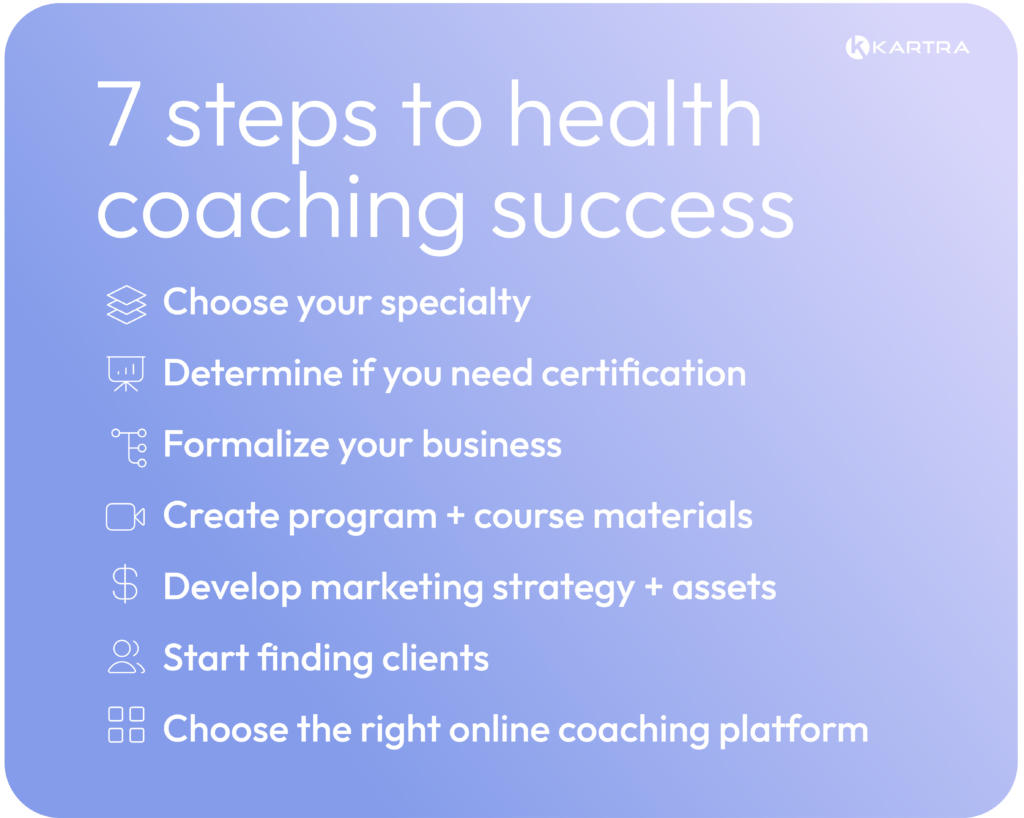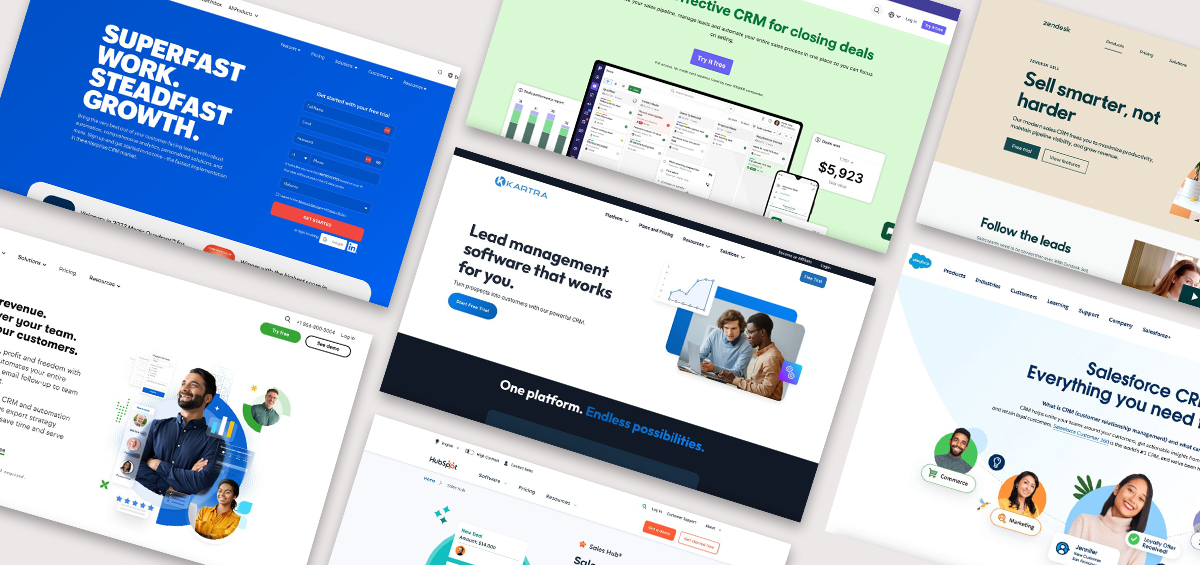Health coaching has exploded in recent years as more people realize they need support on their wellness journeys – not just another diet plan or workout routine, but a true partner in creating lasting change. As a health coach, you help people bridge the gap between knowing what they should do and actually doing it.
Whether you’re new to coaching or ready to take your existing practice to the next level, this guide will teach you exactly how to get started, how to market your health coaching services online, and what to look for in a health coaching platform. Let’s turn your passion for wellness into a thriving coaching business!
What does a health and wellness coach do?
A health coach partners with individuals to implement sustainable lifestyle changes that improve their overall health and well-being. Unlike traditional medical professionals who primarily focus on treating illness, health coaches work with clients on preventive health and lifestyle goals to help clients optimize their well-being. This could include nutrition guidance, exercise and movement plans, stress management, and behavioral change support.
Who can become a health and wellness coach?
A passion for wellness and a commitment to helping others is the foundational requirement for becoming a health coach. Many successful health coaches experienced their own wellness journeys before deciding to help others achieve similar results. Some have overcome personal health challenges, while others have work experience in fitness, nutrition, or healthcare.
Firsthand experience creates a deep understanding of the obstacles clients face and the strategies that work in real life. When clients know their coach has walked a similar path, it builds immediate trust and connection because the coach truly understands their struggles and aspirations.
Most health coaches enhance their personal passion for wellness with professional training through an Associate’s degree, Bachelor’s degree, or even Master’s degree in nutrition, exercise science, or related health sciences. Health coach certification is another important avenue for developing coach skills and establishing credibility.
What are essential skills for health coaches?
Great health coaches develop a unique combination of knowledge and interpersonal skills that allow them to truly transform their clients’ lives.
At the core of every successful health coach lies a deep understanding of health and wellness principles within their niche. For example, a functional nutrition & metabolism coach needs to understand how lifestyle and nutrition affect metabolism, gut health, and hormones.
Knowledge alone isn’t enough — successful health coaches must master coaching techniques to transform information into lasting change. Through…
…active listening,
…motivational interviewing,
…and behavior change techniques
…coaches guide clients to discover solutions and break old patterns. Empathetic communication creates the trust needed for coaches to understand clients’ struggles, celebrate their successes, and provide unwavering support throughout their wellness journeys.
When these skills come together — deep health knowledge combined with masterful coaching abilities — health coaches can create profound positive changes in their clients’ lives. While these abilities take time to develop, focusing on building both knowledge and communication expertise creates the foundation for a successful health coaching practice.

Develop a powerful marketing strategy centered around your mission.
7 Steps to Becoming a Health Coach
So you’ve decided to take the leap and turn your passion for health and wellness into an established coaching practice. Congratulations! Follow these key steps to ensure you get up and running successfully – and so you stand out from a crowded market.

1. Choose your specialty by defining your mission
The health and wellness space is busy — there are countless coaches online, each with their own story and solutions. But there’s only one you, and only you have your story. You have a purpose to fulfill, a story to tell, and people to help. That’s where you start to understand and craft your mission. Your niche will flow out of your mission.
What is your “why”?
Your “why” is the cornerstone of your mission — the personal experience, struggle, or realization that drove you to pursue a career in health and wellness. Maybe it was overcoming your own chronic health challenges, supporting a loved one through an eating disorder, or witnessing firsthand the life-changing power of optimal nutrition.
Uncover the deeper meaning and values behind what you do, and let that purpose-driven narrative shine through in everything you do. This is the key to forging unbreakable bonds with your ideal customers.
What is your promise?
To solidify your mission, craft a bold, specific promise that you can make to your clients. This has to step beyond vague assurances of “feeling better” or “looking great.” Your promise speaks directly to your client’s physical and emotional goals and how you can help them.
Think about tangible, measurable outcomes — like helping diabetic clients achieve a target A1C level or guiding hormone-imbalanced women to regain their energy and vitality after childbirth. Your promise is your unique guarantee that connects your “why” to your client’s goals, hopes, and dreams.
What is your expertise?
While your story and values will captivate your audience, you’ll also need to demonstrate your credibility and qualifications. This can come in the form of work experience, degrees, certifications, and social proof from your clients’ results.
Alongside your professional background, your story and firsthand experiences are also an interwoven part of your authentic expertise. All of this helps communicate that you are an authority who can help.
Mission-driven niching example:
“I help overwhelmed people with Type One Diabetes just like you gain more predictability in their blood sugars so they can finally take their life plans off hold.”
Lissie Poyner, founder of Needles and Spoons, Integrative Diabetes Health Coach, Certified Personal Trainer, owner of Needles and Spoons Health & Wellness, and creator of Keeping It 100.
By defining your mission and your niche, you give prospective clients an instant sense of who you are, what you stand for, and how you can support them. This forms the bedrock of your entire marketing approach, allowing you to craft content, offers, and advertising that resonates deeply with your ideal customers.
2. Determine if health coaches in your niche need certification
Deciding whether health coach certification is worth it depends on the specific niche you’re pursuing. While no particular certification is required to become a health coach, professional credentials can enhance your credibility and provide essential knowledge for working with clients. The key is choosing a certification program that aligns with your career path and the clients you plan to serve. Listed below are several well-known certifications.
- The National Board for Health and Wellness Coaching (NBHWC), widely recognized in the healthcare community, offers the NBC-HWC certification exam after completion of one of their approved training programs.
- American Council on Exercise (ACEfitness.org) offers multiple health coaching certifications in specific areas of health and wellness coaching, including yoga, nutrition, and aging.
- The National Society of Health Coaches (NSHC) offers the Certified Health Coach designation for nurses and clinicians who complete their health coach training program and pass the exam.
- The Institute for Integrative Nutrition (IIN) offers the Certified Health Coach designation following course completion.
Rather than viewing certification or continuing education as a requirement, think of it as an investment in your professional development and a way to stand out in the growing health coaching field. Whichever path you choose, focus on programs that provide practical coaching skills alongside health and wellness education.
3. Formalize your health coaching business
Health and wellness coaches often build their businesses in stages, beginning on the side and gradually becoming full time. Even if you find yourself starting your coaching business in phases, it’s important to have the foundation of your business in place from the start. While this may not be in your wheelhouse, formalizing your business will set you up for long-term success.
Create a business plan
Let’s start with creating a solid business plan. Even if you’ve never written one before, it’s important to take time to plan. You’ll want your business plan to flesh out your business ideas, project sales, analyze your target market, and set realistic goals. Think of it as a roadmap to guide you as your coaching practice grows.
Choose your coaching model
Your clients are facing enough challenges in their lives — working with you should be easy and intuitive. How you offer your services plays a huge role in whether someone will take the next steps toward their goal. Most wellness coaches offer several options — perhaps an online course, 1-1 coaching sessions, or a 10-week program.
Many successful health coaches opt for a hybrid approach, combining personalized coaching with more scalable offerings. It’s a smart move to have a variety of choices, both to diversify your revenue streams and give your clients more options for achieving their goals.
This allows you to maintain personal connections while also expanding your reach and impact. Just remember to carefully consider the pros and cons of each model in terms of your income potential, client interactions, and day-to-day operations.

Find the model that works best for your coaching business.
Set up your payment systems
As an online health and wellness coach, you’ll need reliable and secure methods for clients to pay for your services. It may seem easier to just use your personal bank account, but that gets messy when it comes to taxes and accounting. Here are some things to consider as you get started:
- Register your business in your city/state including choosing a business name and obtaining any necessary licenses and permits
- Set up a business bank account to separate your business payments from your other personal accounts. Your accountant will thank you.
- If you’ve already worked out a membership program or have a course ready to sell, congrats! Kartra’s membership platform provides an integrated payment system, allowing you to handle invoices and payments, set up subscriptions, accept payment via PayPal or credit card, and offer discounts and promotions with ease. Thousands of coaches trust our secure payment gateway.
These tips provide the beginning steps to establish your health coaching practice. If you’re unsure how to get some of these done, you may want to find a consultant or professional who helps small business owners take care of this work.
4. Create program materials
Your coaching program materials are the resources that guide your clients through their healthy lifestyle transformation, so it’s important to put in the time to develop them thoughtfully. Each piece should support your mission and the promise made to your clients.
Outline your core methodology
Your core methodology is the secret sauce – the specific process you use to help your clients achieve their health goals. This might be a 5-step system for developing sustainable eating habits or a 3-phase framework for managing stress. Make sure your process is clear, compelling, and specific to your coaching mission.
Develop content that supports learning
Break your wellness program content into two categories: educational materials that teach important health concepts, and application tools that help clients put what they’ve learned into practice. For example, you could create video lessons on nutrition basics, paired with meal planning worksheets and grocery shopping checklists.
Implement mixed-media formats
Use a variety of formats to keep your clients engaged – videos, audios, workbooks, quizzes, and more. This caters to different learning styles and gives your clients the flexibility to consume the content how they prefer. Many successful health coaches use quizzes for goal setting and to increase their understanding of the client’s health journey. Other examples from health coaches include guided meditations or cooking demo videos to provide an extra layer of support.
Brand all your materials consistently
Consistent branding is essential to telling your story effectively! Make sure your program branding is on point, from the visuals to the voice and tone. This reinforces your expertise and helps your clients connect with you and know they’re receiving a high-quality, expert experience.
5. Develop a marketing strategy + assets
So far, we’ve focused on taking care of the business essentials like creating a business plan, choosing a delivery model, and setting up payment systems. Let’s turn the corner to marketing ideas that will drive leads to your coaching business.
Market your value
In the wellness space, it’s especially important to convey value because people’s health is so deeply personal to them. Coaches who focus their marketing around features are easily comparison-shopped. (Features are the technical aspects or specifications of your service, while benefits are the positive outcomes that clients will experience.)
While some feature-based messaging is necessary, benefit marketing is where you win clients — because you’re speaking to what really matters.
Do you want your audience and prospects to wonder how much your program costs compared to a book on Amazon? Or do you want clients to see you as an indispensable partner in their health journey? Make sure your marketing is focused on your mission and how you provide value to the client’s life.
Design a compelling website through storytelling
Storytelling in marketing is a style of copywriting that focuses on the reader’s challenges and aspirations, and how your unique experience and offer (your mission!) can guide them to success. When done right, it allows you to seamlessly weave your expertise and credibility into a relatable, memorable brand experience.
Your website should clearly communicate your value proposition, showcase your expertise, and make it easy for potential clients to contact you. Be sure to tell your story throughout the website and to speak directly about your client’s pain points. It’s also important to talk about specific problems and to clearly state your promise – how you will help clients achieve their goals.
Although it may seem daunting, you can do this! Include the following elements:
- An “About” section highlighting your experience and credentials
- A services page that clearly outlines what you offer and the value you provide
- Case studies or testimonials from satisfied clients (as you acquire them) proving you can deliver on your promise
- A blog or resources section to demonstrate your knowledge and provide value
- Clear calls-to-action (CTAs) for scheduling coaching sessions or signing up for your mailing list
At first, several of these elements may all be on your homepage. This is just the first iteration of your website – as you grow, your website will grow with you.
Create business collateral
While most of your marketing and sales might happen in the digital world, having professional business collateral can set you apart from other online coaches. Invest in:
- Business cards with a clean, memorable design
- A professional email signature with your contact information and website
- Branded proposal and coaching package templates
- A digital brochure or one-pager outlining your coaching services
These materials not only make you look more professional, but also serve as valuable tools for networking and client presentations.
Start an email newsletter
Building an email list is one of the most effective ways to nurture relationships with potential coaching clients and stay top-of-mind with your network.
To actively grow your list, many coaches create a lead magnet – such as an ebook, free weight loss mini-course, or complimentary strategy session for managing chronic disease – and place it on their website to encourage sign-ups. Then, you can follow up with a regular newsletter that provides value to your subscribers while subtly showcasing your coaching expertise and services.
Develop a content strategy
Establishing yourself as a thought leader in your coaching niche can significantly boost your credibility and attract clients. Consider the following content marketing strategies:
- Create social media profiles on relevant platforms. You probably don’t need to be on every platform, so choose the ones that fit your audience. We’ll talk more in the next section about how to use social media to find clients.
- Use your knowledge to create in-depth guides, whitepapers, or SEO content on topics relevant to your target audience.
- Develop case studies that showcase your successful client engagements.
When you consistently produce high-quality content, you’ll improve your visibility and demonstrate your coaching expertise to potential clients.
Utilize a sales funnel
While these marketing strategies and ideas are sure to generate awareness and traffic, you need a way to turn those website visitors into qualified leads. That’s where a sales funnel comes in.
Funnels are built-out marketing stages used to move prospective customers from general interest to purchasing. Funnels traditionally start by attracting clients with a lead magnet of some sort – perhaps a webinar or a free template – which they get in exchange for their email address. Brainstorm what resource you could provide for free that will encourage prospects to want to learn more from you.
Since sales funnels are designed to inform and influence prospects about your business and why they should consider using your services, automated email provides a perfect opportunity to continue the conversation with prospects.
If you’re curious about funnels, we have an entire article that walks through what sales funnels are and how you can build one for your coaching business.

Learn how to build an effective sales funnel.
6. Start finding clients!
Finding your first clients is an exciting time – you’ve been dreaming of helping others for a long time now. Building your client base will likely begin within your existing realm of influence and work outward in widening circles.
Reach out to your existing network
The best place to start is with the people who already know and trust you. Reach out to past colleagues, friends, family members – anyone in your inner circle who could benefit from your coaching. Also don’t be afraid to ask for introductions to potential clients or referral partners.
Build a social media presence
Start by choosing a couple of platforms where your ideal clients hang out, like Instagram, TikTok, or LinkedIn. Some health coaches start a podcast or YouTube channel to share their coaching insights. Use these platforms to connect with people searching for solutions to their problems – and tell your brand story, showcasing your coaching expertise.
Share valuable content that showcases your expertise – think nutrition tips, workout demos, or mindfulness practices. Giving your audience something they can understand and use today is crucial to building trust (and brand awareness).
Get reviews and case studies
When potential clients are researching health coaches, testimonial success stories build trust and give people a vision for achieving their goals with you. As you work with your first few clients, ask for detailed reviews that highlight the specific results you helped them achieve. You can also create in-depth case studies that tell the full story of your coaching process and its impact.
Partner with other professionals
Look for opportunities to collaborate with complementary service providers, like dietitians, personal trainers, or mental health therapists. You could develop collaborative programs, create referral agreements, or even host virtual events together. This helps you tap into new audiences and provide more comprehensive solutions for your clients.
Attend virtual and in-person events
You can find amazing clients and partners through networking. What’s your niche and where can you connect with like-minded people? Consider options like wellness conferences, yoga festivals, virtual health summits, or local holistic wellness events. Here are some tips to make the most of these opportunities:
- Focus on authentic connections rather than selling. Ask about their wellness journey and really listen. Share your own story of what drew you to wellness coaching.
- Perfect your wellness pitch – be able to explain how you help people transform their lives in just 30 seconds. For example: “I help busy professionals find balance and vitality through personalized wellness routines that fit their lifestyle.”
- Make it super easy for people to connect with you later – have a paper or digital business card ready or use a QR code that leads to your website.
- Follow up within 24 hours with a personal note mentioning something specific from your conversation such as a relevant wellness resource you discussed.
Consider hosting your own events too! You could lead a workshop on stress management techniques, guide a morning meditation session, or host a wellness tea circle. These are great ways to demonstrate your expertise while creating meaningful connections.
7. Choose the right online coaching platform
If starting an online health coaching business sounds daunting, don’t worry. It doesn’t have to be. While most coaches stitch together various software for email, websites, and CRM, Kartra’s all-in-one marketing platform has all the tools you need in one convenient place.
For coaches with a course-based approach, Kartra’s platform was built specifically with you in mind. Coaches can create everything from multi-tiered lesson plans to scaled programs and even mini-courses, all within Kartra. Courses can be dripped out, and coaches can see completion reports and analytics.
If you need solutions for growing your online health and wellness coaching practice, check out Kartra’s suite of marketing tools – email marketing, lead capture forms, CRM, and sales funnel creator tools – all integrated seamlessly together.
Discover why Kartra is the best all-in-one marketing platform for online coaches.
Get started today.


